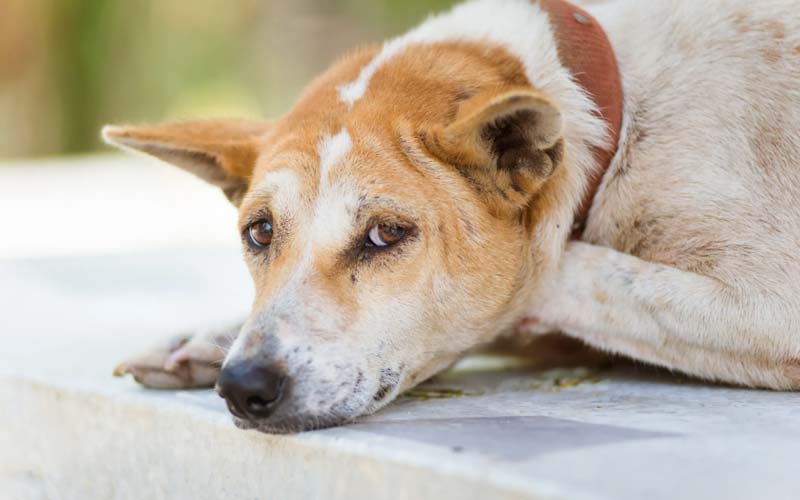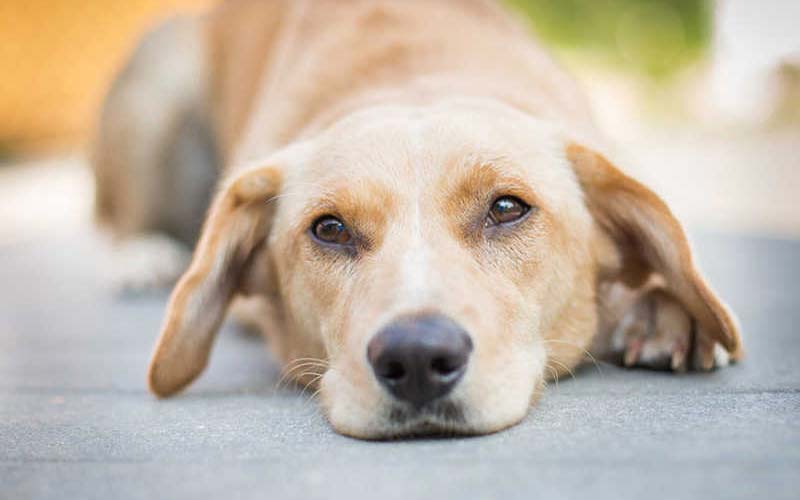As a dog owner, it’s not uncommon to encounter an occasional bout of diarrhea in your furry friend. While it can be a messy and unpleasant experience, it’s essential to understand that diarrhea is often a sign that something isn’t right with your dog’s digestive system. In this blog post, we’ll explore the common causes of diarrhea in dogs, shedding light on various factors that can lead to this uncomfortable condition. Whether you’re a seasoned dog owner or a new puppy parent, this article will help you gain insights into identifying the causes and finding appropriate treatment options for your beloved canine companion.

1. Common Causes of Diarrhea in Dogs:
- Dietary Issues: Dogs can be quite sensitive to changes in their diet. Introducing new foods too quickly or switching to low-quality or unfamiliar brands can upset their delicate digestive balance, resulting in diarrhea. Additionally, dogs have a penchant for exploring things with their mouths, leading to ingestion of spoiled or inappropriate food items, causing gastrointestinal distress.
- Bacterial or Viral Infections: Just like humans, dogs can fall prey to bacterial or viral infections that target their gastrointestinal tract. Common culprits include Salmonella, Campylobacter, or the parvovirus. These infections can cause severe diarrhea, along with other symptoms like vomiting, lethargy, and loss of appetite.
- Parasitic Infestations: Intestinal parasites, such as roundworms, hookworms, giardia, or coccidia, are another potential cause of diarrhea in dogs. These parasites can be contracted through contaminated soil, fecal matter, or even from their mother during birth. Regular deworming and maintaining good hygiene practices can help prevent these infestations.
- Allergies and Food Intolerances: Dogs, just like humans, can develop allergies or food intolerances. Certain ingredients in their diet, such as grains, dairy products, or specific proteins, can trigger an allergic reaction or intolerance, leading to gastrointestinal upset and diarrhea. Identifying and eliminating these triggers from their diet can alleviate the symptoms.
- Stress and Anxiety: Dogs are sensitive creatures, and stress or anxiety can take a toll on their digestive system. Situations like moving to a new home, loud noises, separation anxiety, or changes in routine can cause diarrhea in dogs. It’s crucial to create a calm and secure environment for your pet and offer them support during stressful times.

2. Treatment Options and Prevention:
The approach to treating diarrhea in dogs depends on the underlying cause. However, there are a few general steps you can take:
- Withhold Food: Fasting for 12-24 hours allows your dog’s digestive system to rest and recover. Ensure access to fresh water to prevent dehydration.
- Gradual Diet Transition: After the fasting period, reintroduce bland and easily digestible food, such as boiled chicken and rice. Slowly transition back to their regular diet once the stools firm up.
- Veterinary Consultation: If the diarrhea persists, is severe, or accompanied by other concerning symptoms, it’s crucial to consult your veterinarian. They can perform diagnostic tests, prescribe medications, or recommend dietary changes tailored to your dog’s specific needs.
- Hydration and Probiotics: Encourage your dog to drink water to prevent dehydration. Probiotic supplements can help restore the balance of beneficial bacteria in their gut, aiding in recovery.
Preventing diarrhea in dogs involves maintaining a healthy diet, regular deworming, proper hygiene, and minimizing stressors in their environment. However, if the condition persists or worsens, seeking professional veterinary advice is essential to address the underlying cause effectively.
Conclusion:
Diarrhea in dogs can occur due to various factors, including dietary changes, infections, parasites, allergies, or stress. Identifying the underlying cause is vital for appropriate treatment and prevention. By understanding the common causes and taking necessary precautions, you can help keep your canine companion’s digestive system healthy and ensure their overall well-being. Remember, if your dog experiences prolonged or severe diarrhea, consulting a veterinarian is always the best course of action.
